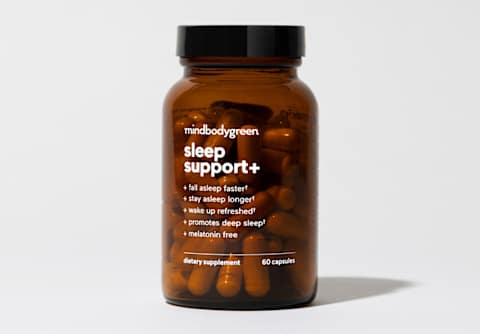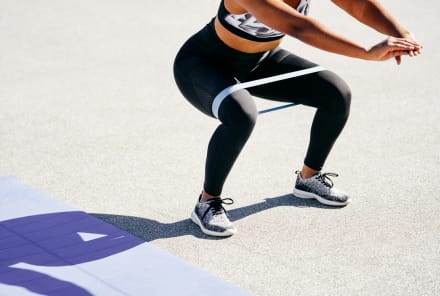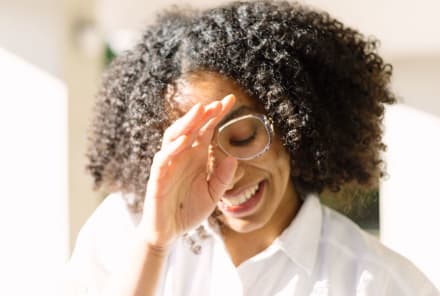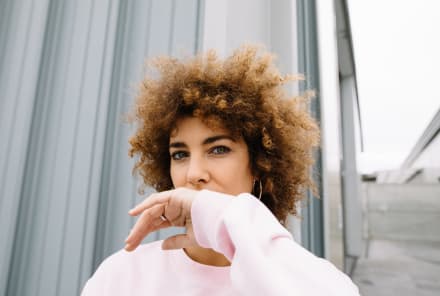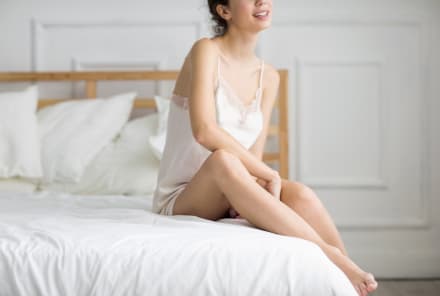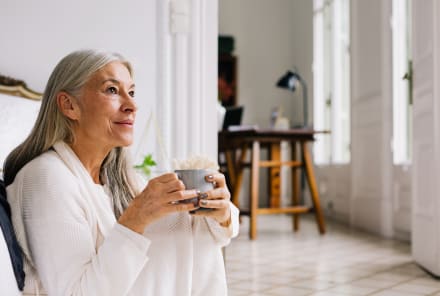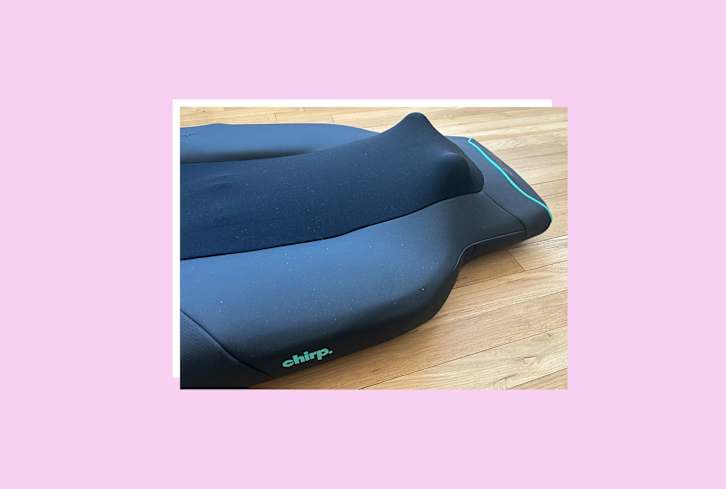Advertisement
A Functional Health Expert's Nighttime Nonnegotiables For Deep Sleep


I'm a better sleeper than I used to be. When I was younger and struggling to achieve business success, I had a lot of energy, and it was hard to settle down at night. Now, I'm a lot savvier about sleep hygiene, and I do my best to practice what I preach.
And as a functional medicine expert, I know that good sleep is critical for success—physically and mentally. During deep sleep, your brain flushes out waste and consolidates memories as your body repairs and heals. If you don't give yourself the chance to do all that, your waking life will be suboptimal.
So, I try to get to bed on the early side when humanly possible. With my busy schedule, it's always a challenge, but having a nightly routine really helps me wind down. I also really prioritize my sleeping environment. I keep the room completely dark—free of even the tiny red lights of electronics. I use blackout curtains, and I wear a sleep mask. I take darkness very seriously! I also keep my bedroom at around 65 degrees Fahrenheit, as that has been shown to be the ideal temperature for sleep and brain health. I also keep my bedroom obsessively clean and decorated in a way that makes me happy whenever I walk in, with fresh flowers always.
When my bedroom truly feels like a sanctuary, sleep is a pleasure. And when sleep is a pleasure, I actually look forward to bedtime.

- Average hours I sleep a night: Honestly 5 or 6, but I always shoot for 7 to 8.
- Ideal bedtime: If I had my way, I'd be in bed by 9. More often, I'm pushing midnight.
- Ideal wake-up time: I usually wake up at 5 a.m., whether I'm ready or not! But my ideal wake-up time would be just before sunrise.
- Nightstand essentials: A fresh glass of water, a book, a silk sleep mask, and an orchid (I try to keep it low-tech in my sleep space).
- Favorite place I've ever slept: On a ship. I love how the water rocks me to sleep.
- Sleep bad habit: Perseverating about tomorrow. I struggle with compartmentalizing all the things I know I have to do the next day.
- Caffeine consumption: I've cut way down, so I only sometimes have a coffee (and more often a green tea)—and never, ever after noon
- How I track my sleep: I'm not a big fan of using sleep tracking tech. I think it can become obsessive and even competitive. Instead, I can tell how I slept by how I feel the next morning. (Your body is wise, so listen up!)
- The last product or habit that changed my sleep for the better: Low-tech as I like to be, I'm fascinated by the Hatch sleep machine, especially because of the gradual sunrise "alarm" light. We don't get enough natural light, and the way this mimics sunrise is good for circadian rhythm health.

7:30 p.m.: I try to note the time that the sun sets every day. Whether it's earlier in the winter or later in summer, I do my best to get outside and have a look—even if it's just for a few minutes. The red light is great for sending my brain the message that it's time to stop working and start winding down1. After sunrise, I try to keep all the house lights low.
8 p.m.: I'm already thinking about sleep, even if I'm still out and about. I can't wait to start my sleep routine, so on down days, I may already be in the bath at this time.
8:30 p.m.: If I'm lucky enough to be home, I start my bedtime routine in earnest now. I put away my phone, shut down the computer, put on some quiet music, and brew a cup of chamomile tea.
9 p.m.: This is when I really commit to relaxation. My favorite thing is when my husband and I can take an evening walk or sit and talk about our days together. We are each other's best cheerleaders, and I always feel a little calmer when I can share what I've been doing and listen to what he's been doing. Then we talk through any issues we've each had to deal with out there in the world. This time is a big priority for both of us.
9:30 p.m.: If I haven't already, I run a hot bath and soak until I start to feel drowsy. I may throw some essential oils into the bath and light some candles if it's been a really long day.
10 p.m.: After my bath, I'll do my evening hygiene: washing my face, brushing my teeth, and using whatever beauty products I'm trying (I'm always interested in trying the latest thing!). Then I take my sleep supplements, which usually consist of magnesium, ashwagandha, and on occasion, melatonin if I'm feeling like I'll need a little extra help.*
10:30 p.m.: I put on my favorite PJs and snuggle in around 10 or 10:30 on most nights if I can. If I'm really lucky, I'll already be asleep by this time. If I have evening obligations, I may not get to bed until 11 or 12, but I feel a lot better when I'm in bed by 10. If I still need more calming, I'll read a book or do some journaling, or I'll meditate for about 20 minutes. Meditation is my best sleep medicine, and though it takes some effort, I find that it pays off in refreshing and rejuvenating sleep.
5 a.m.: I'm often wide-awake at this time, ready to take on another day. Sometimes I try to sleep in, but I'm almost always up by the sunrise. I try to catch a glimpse of that, too, to send my pineal gland (a main governor of the circadian rhythm) the message that it's time to wake up.
